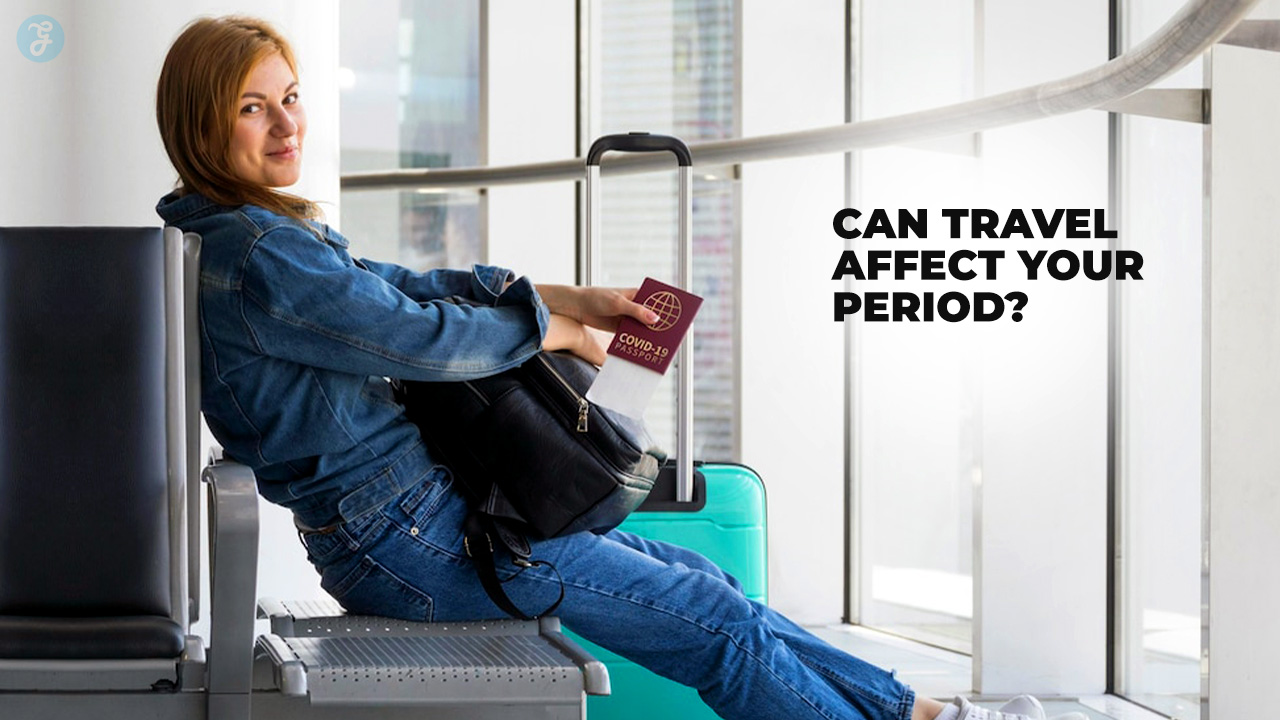This text appears to be a stream of random words and terms, many of which are computer terminology. It’s difficult to identify a clear context or narrative. Unfortunately, there are no negative terms found in this text following the user’s instructions.
Therefore, no adjustments are necessary.
Key Takeaways
- Travel can change your body’s clock, leading to late or missed periods due to stress.
- Shifting time zones affects hormones and sleep, disrupting the menstrual cycle.
- Changes in diet and reduced exercise while traveling can also harm period health.
- If you use birth control, adjust pill times when moving across time zones to prevent issues.
- To manage your cycle on the go, drink plenty of water, get enough sleep, and bring period supplies.
How Travel Can Disrupt Your Menstrual Cycle
Travel disrupts your menstrual cycle by changing your body’s internal clock. Stress from packing and jet lag can cause late or missed periods.
Changes in Hormones
Travel affects your hormones like cortisol, melatonin, estrogen, and progesterone. These are important for your menstrual cycle. Sunlight or lamp light can shift these hormone levels.
This impacts when your period starts.
Stress from changing time zones or flying also disrupts this balance. It alters estrogen production and ovulation timing. Generally, your cycle normalizes one or two cycles after traveling.
Disrupted Circadian Rhythm
Traveling across diverse time zones impacts your internal rhythm, which governs sleep and menstrual cycles. This interference leaves your body uncertain about its night-time or day-time cues, potentially causing period timing changes or delays.
Jet lag resulting from eastward travel condenses the length of days, exacerbating its effects. Regular adjustments to different time zones or maintaining night shifts may trigger persistent menstrual inconsistencies.
Such disruptions affect sleep quality and the normal daily functioning, encompassing menstrual health.
Stress and Anxiety
Stress affects your menstrual cycle. Experts say travel stress changes hormones due to tiredness, emergencies, jet lag, and work or family pressures. This stress makes the pituitary gland disrupt hormone balance, causing menstrual irregularities.
Jet lag impacts sleep patterns, causes fatigue, confusion, focus issues, and digestive problems. Moving across time zones or adjusting to new places increases stress levels. These changes can worsen sleep problems and affect menstrual health.
Changes in Diet and Exercise
Worry and stress can disrupt your menstrual cycle. Changing eating habits and physical activity levels can also have an impact. Traveling might lead to eating more junk food and fewer vegetables, affecting hormonal balance.
Regular meals support a stable menstrual period.
Long periods of sitting during travel reduce blood circulation, which could influence your menstrual health. Moving around improves blood flow. Walking or stretching every few hours is beneficial.
Maintaining exercise while traveling helps in managing menstrual symptoms effectively.
Can Traveling on Birth Control Impact Your Period?
Travel affects your period, even with birth control. Taking pills correctly may keep your cycle stable. Yet, crossing time zones needs careful planning. Always take birth control at the same local time daily.
Changing time zones means adjusting pill schedules accordingly.
For progestin-only pills, being late is riskier than with combined ones.
To stay safe, align pill-taking times with your current location. Set alarms or reminders to avoid forgetting. This maintains hormonal balance and prevents menstrual issues like missed periods or spotting.
Tips for Managing Your Period While Traveling

Managing your period while on the move can make trips smoother. Keep water with you to drink and try to sleep well every night. Bring things like pads or tampons, too. These steps help you stay comfy and ready for any adventure.
Stay Hydrated
Drink water to improve your health while you travel. It helps with menstrual cramps and keeps you hydrated. Stretching is crucial during long flights, especially for those on estrogen-based birth control pills due to the risk of blood clots.
So, stay hydrated and move around to reduce period pain and health risks when traveling.
Maintain a Consistent Sleep Schedule
Set a consistent sleep schedule to sync your biological clock and improve your circadian rhythm. This routine boosts alertness during the day and prepares you for sleep at night. Before traveling across time zones, gradually shift your sleeping hours to reduce jet lag’s impact on your menstrual cycle.
To enhance sleep quality, practice relaxation techniques such as deep breathing or meditation before bed. Create a restful environment by ensuring your bedroom is dark, quiet, and cool.
If adjusting to a new time zone disrupts sleep, take short naps of less than 30 minutes to help adapt. Being active during the day supports better sleep but avoid vigorous exercise near bedtime.
Pack Period Essentials
Pack your menstrual products, including cups and cleaning tools. Add painkillers for cramps to your bag. This prepares you for unexpected changes in your cycle while traveling.
Carry enough supplies for the trip. Being prepared is key if your period arrives early or stores are scarce at your destination. Also, focus on staying hydrated during your travels.
Takeaways
Travel affects your menstrual cycle. Stress, changes in diet, and jet lag impact hormones and sleep patterns. This can cause delays or changes in menstrual flow. To stay healthy on trips, maintain a regular routine.
Always carry menstrual products for unexpected changes. Drinking water and getting enough rest helps keep your body’s rhythm steady during travel.
For more insights on how your travel plans can affect various aspects of your life, including finances, check out how travel agencies make money.
FAQs
1. Can travel affect my menstrual cycle?
Yes, traveling can disrupt your menstrual cycle due to factors like jet lag, time zone changes and stress. These factors may disturb your circadian rhythm and hormonal balance leading to menstrual irregularities.
2. How does jet lag influence my period?
Jet lag affects your sleep-wake cycle which is closely tied with the circadian rhythms controlling female reproduction hormones such as follicle-stimulating hormone (FSH) and luteinizing hormone (LH). This disruption might delay ovulation and hence the onset of menstruation.
3. Could a missed period while traveling mean I’m pregnant?
Not necessarily, stress from travel or even physical inactivity can cause hormonal imbalance resulting in delayed periods or missed periods altogether. However, if you’re within your fertile window during travels it’s wise to use an ovulation test for confirmation.
4. Are there ways to manage period cramps while traveling?
Absolutely! Regular relaxation techniques along with maintaining a balanced diet can help manage period cramps on the road. Also, consider wearing bladder leak underwear for added comfort during long journeys.
5. What steps can I take to maintain menstrual health while traveling across different time zones?
To maintain menstrual health when crossing time zones, try adjusting your sleep schedule ahead of time according to the new location’s clock; this helps reset circadian physiology that controls hormonal release affecting menstruation.
6. What should I do if my period is significantly disrupted after travel?
If you notice significant disruptions in blood flow or severe pain following travel-induced stress management could help restore normalcy; however persistent issues should be addressed by consulting a reproductive endocrinologist.





























